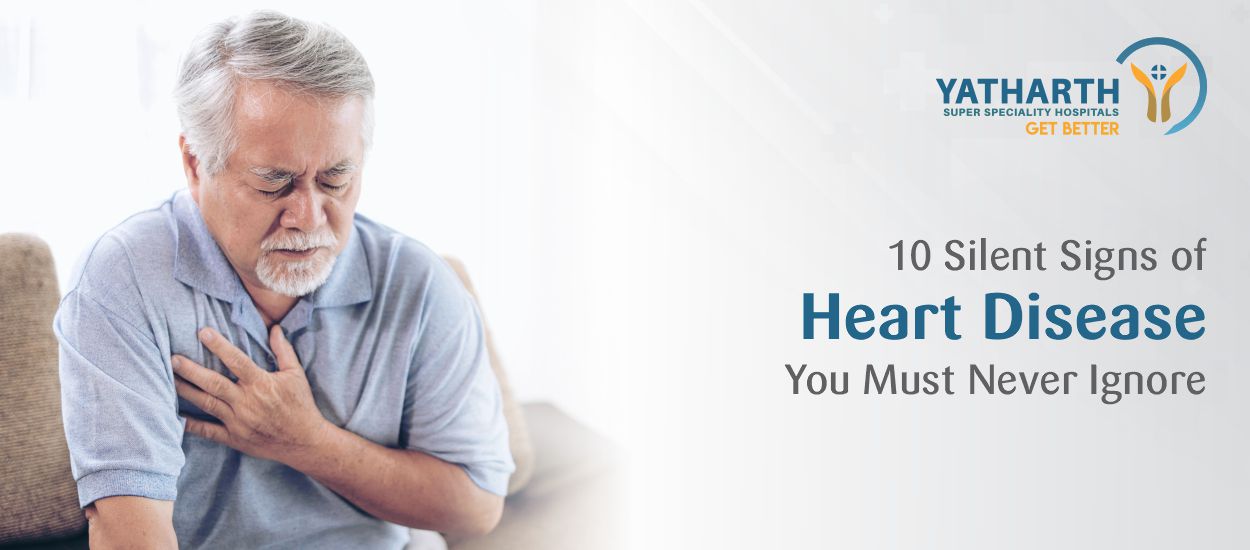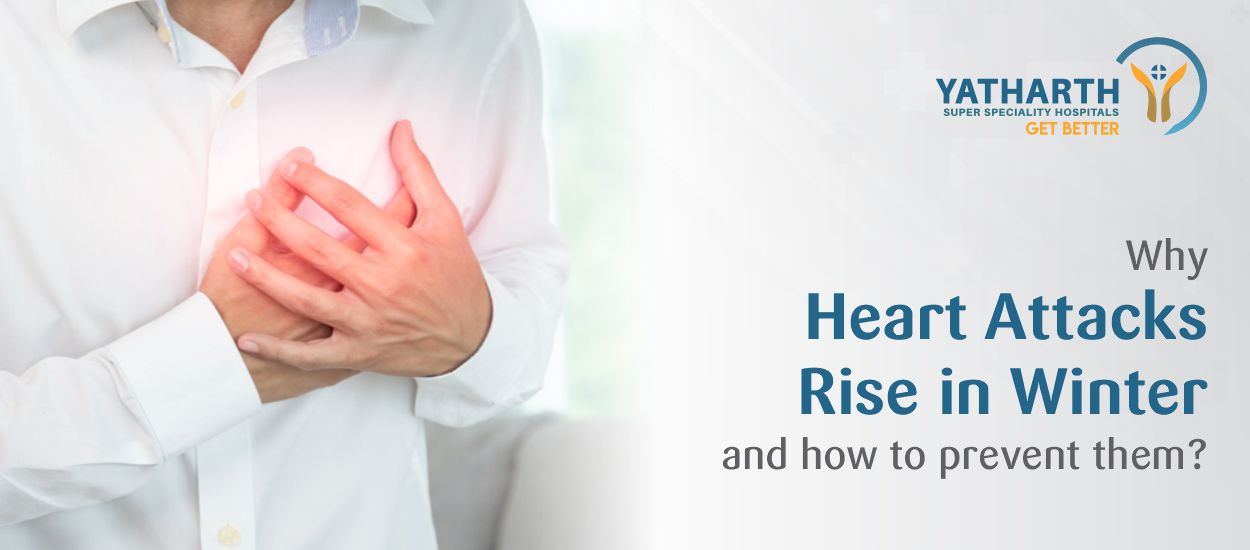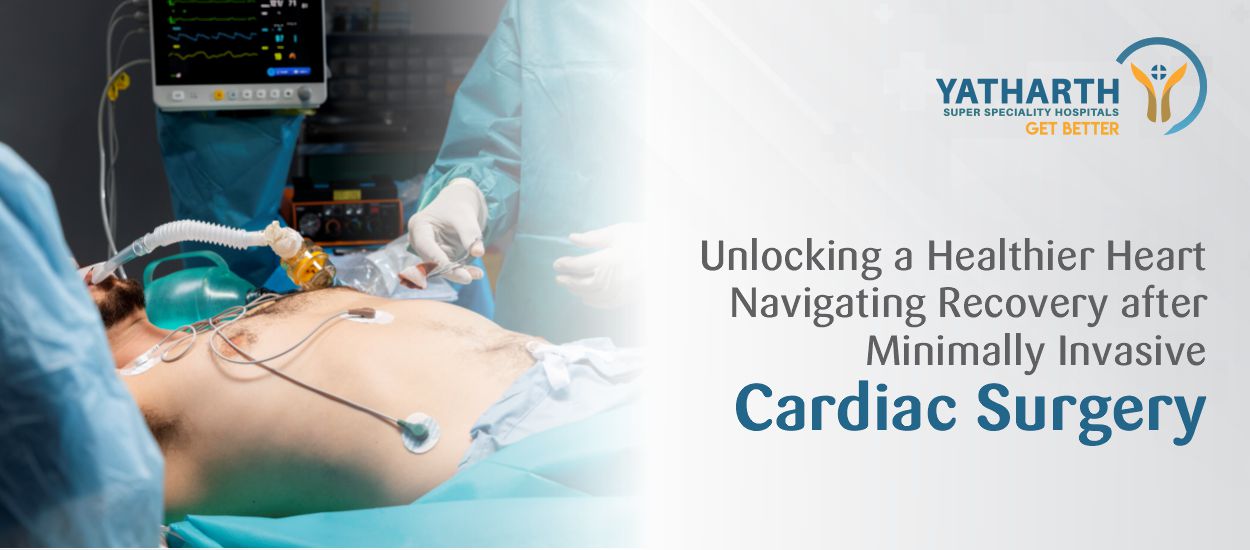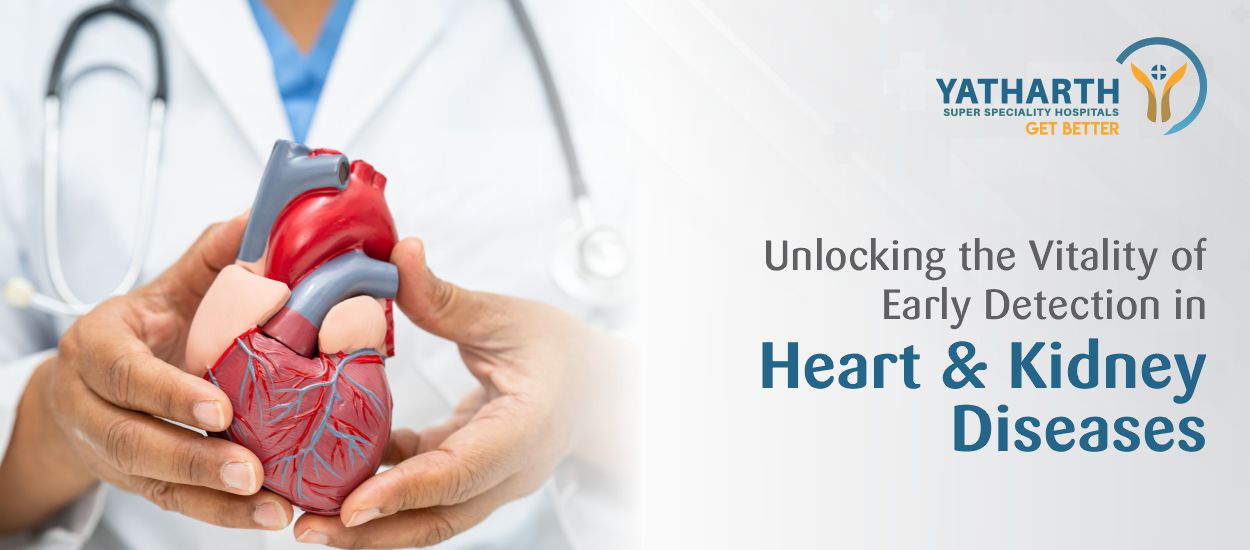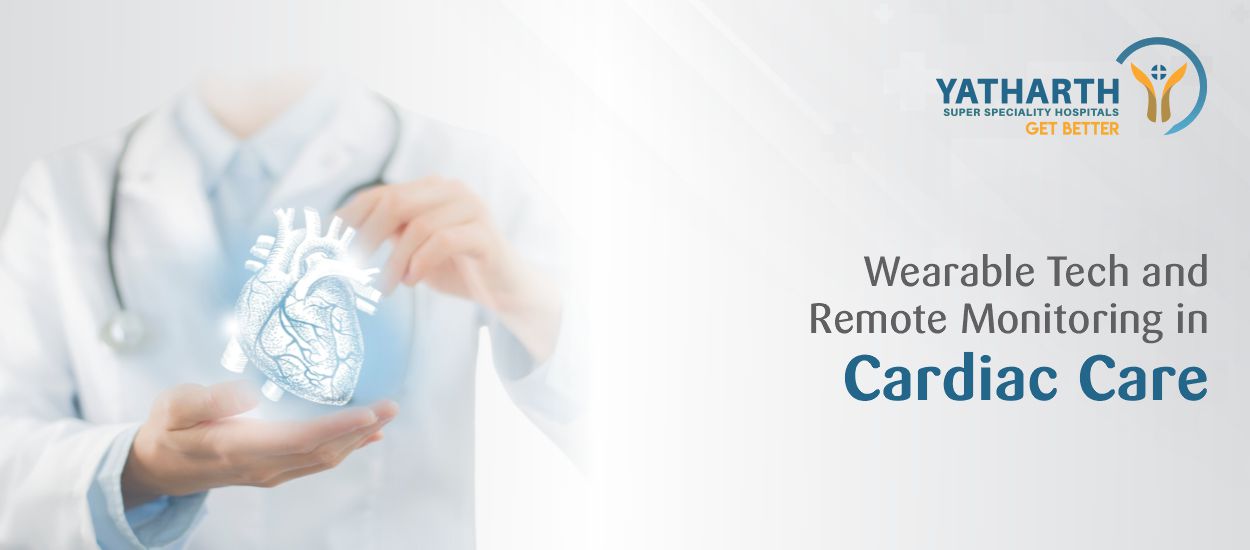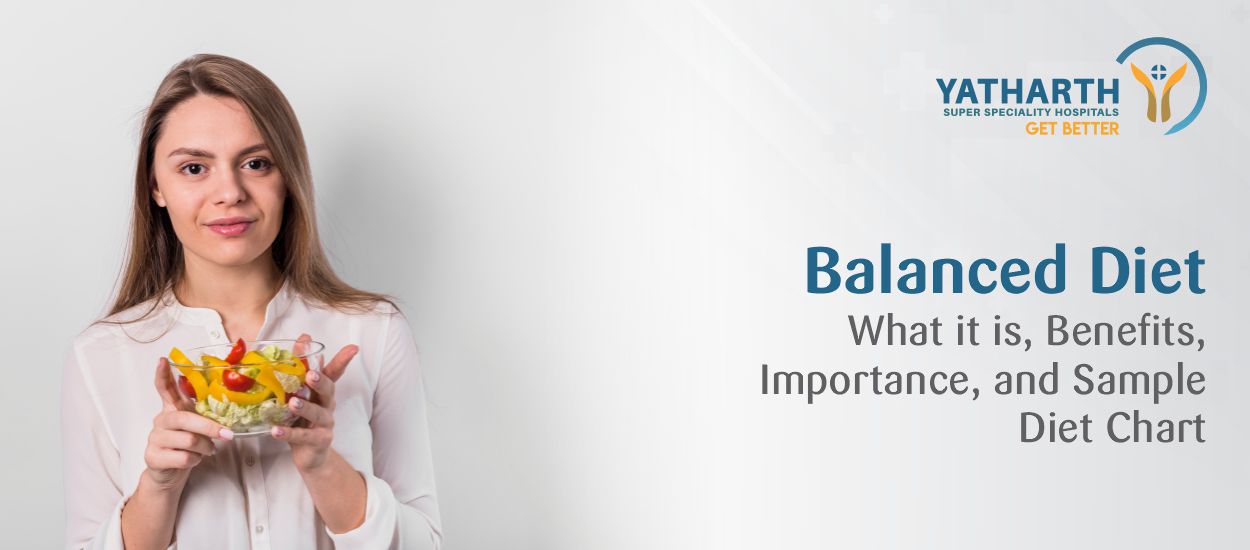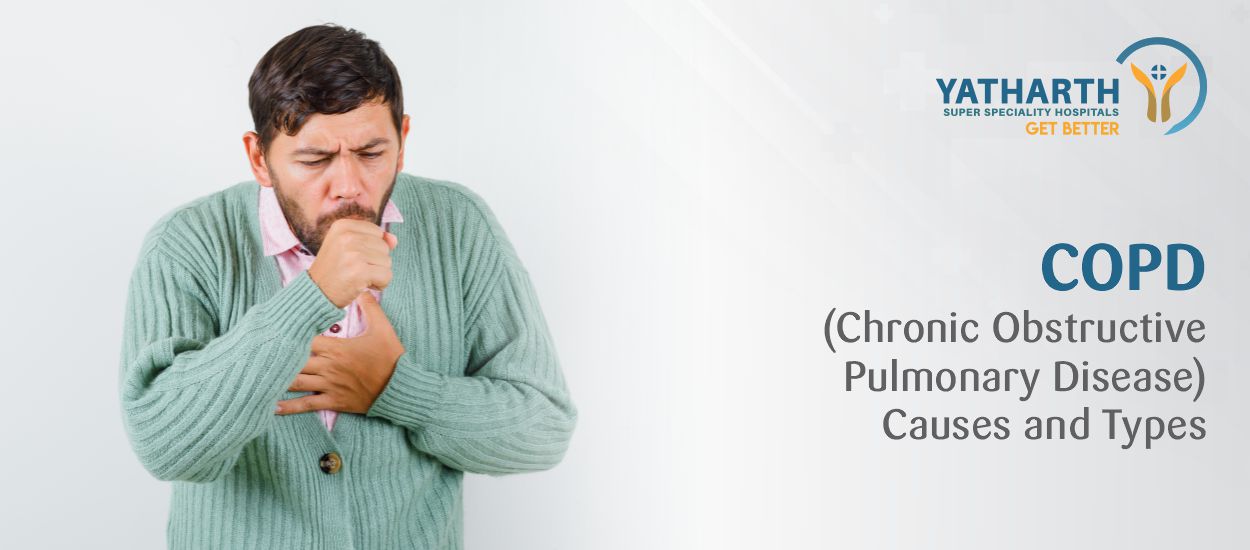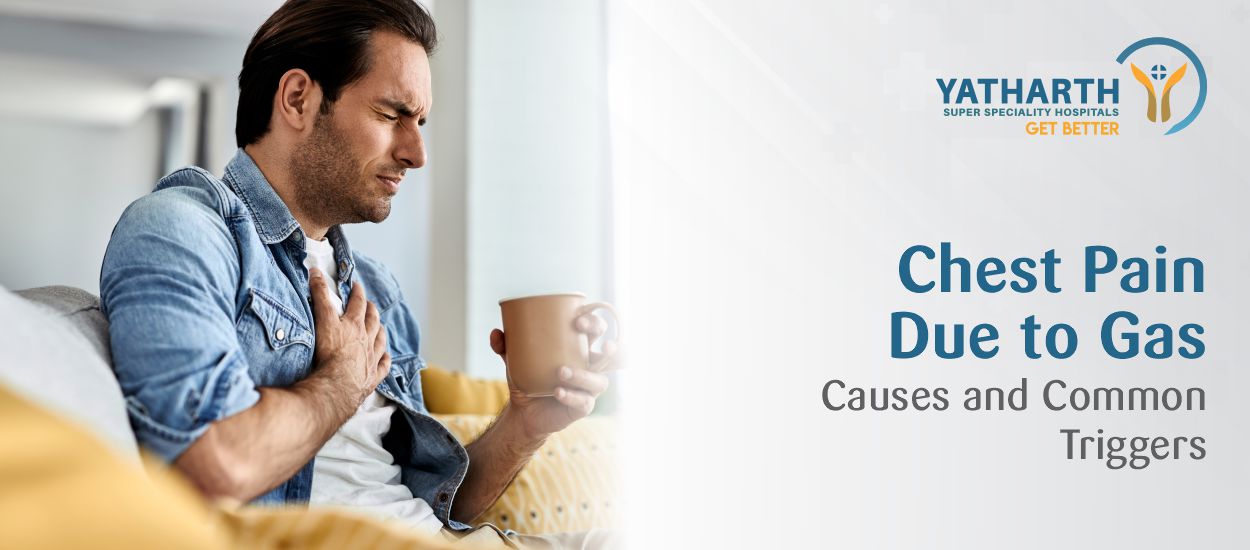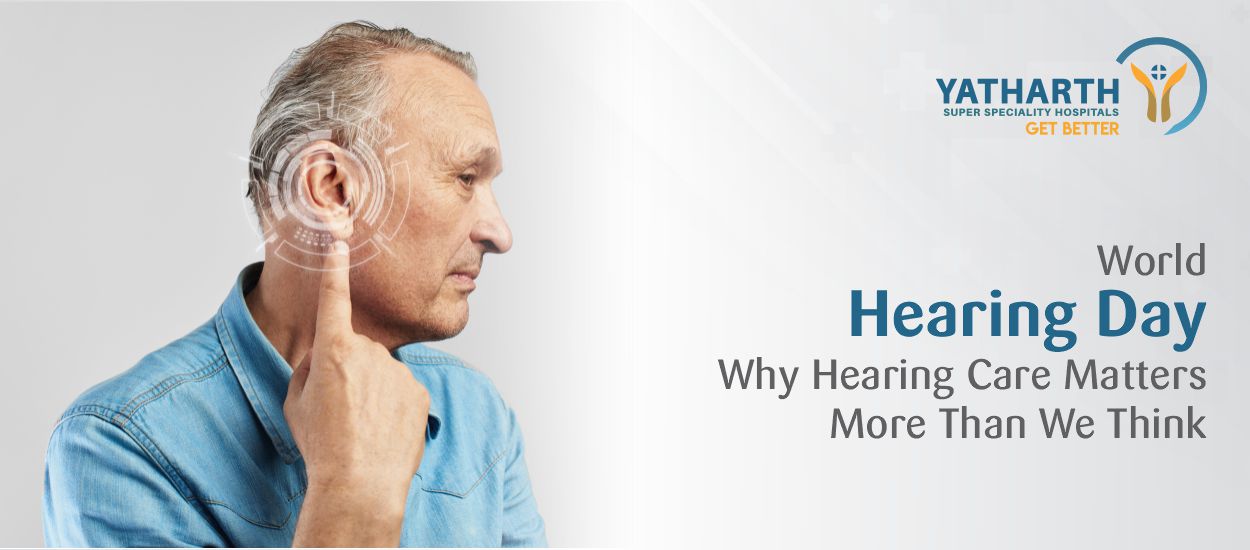Generally, people associate heart disease with intense symptoms such as severe chest pain or sudden breathlessness. However, many warning signs may be ignored since these are much subtler. Occasionally, such silent symptoms could indicate serious latent issues affecting the heart. Such attacks are termed silent heart attacks since the symptoms are mild or absent or those that we don’t link with heart attacks. Nonetheless, it’s a heart attack because your heart is not receiving adequate oxygen and blood flow.
Such silent attacks could still hurt your heart like the more obvious ones. If you are unaware of suffering a heart attack, medical help will not be summoned on time, causing some damage. Therefore, recognising these symptoms early can be vital in saving your life. This is especially important if you are more than 60 years old, overweight, have high blood pressure, high cholesterol or diabetes. The more risk factors a person has, the more important it is to be aware of the silent heart attack signs.
Outlined below are 10 less-known signs indicating heart disease, which should not be ignored.
1. Chest discomfort: This is the most common indication of a heart problem. If there is a blocked artery or a heart attack is underway, one may experience some pain, pressure or tightness in the chest. Usually, this sensation could last for more than a few minutes. It could occur when a person is resting or working. If the pain is extremely brief or a specific spot hurts more when touched or pressure is put there, this may not be related to the heart.
Yet, if the symptoms persist, it’s better to visit a cardiologist. If the symptoms turn more severe and don’t recede after a few minutes, call an ambulance. Do remember that one can experience heart issues or even a heart attack, without chest pain. This is more common among females.
2. Pain spreading to the arm: Pain spreading down the left side of your body is another typical heart attack symptom. Beginning mostly from the chest, this pain then moves outward.
3. Nausea, heartburn or indigestion:These symptoms may be felt by some persons during a heart attack. More than males, women are prone to reporting such symptoms. Nevertheless, the symptoms may not be connected to the heart and could happen because of an upset stomach or other issues. But if a person is at risk for heart ailments and the symptoms occur, one could visit a doctor and also check if the other symptoms mentioned here are also present.
Particularly in women, such symptoms could signify the heart is struggling to effectively pump blood, creating a feeling of discomfort in the upper abdomen. If indigestion or nausea arises suddenly together with sweating, breathlessness or fatigue, prompt medical attention should be sought.
4. Jaw, throat, neck or shoulder pain: Pain in these regions by itself may be unrelated to the heart. It can be due to a cold, a sinus problem or a muscular issue. But if any pain or pressure originating in the middle of the chest radiates into your throat, jaw, neck or shoulder, it may indicate a heart attack. It’s best to get medical attention and ensure things are fine. If such symptoms happen while undertaking physical activity or occur with chest discomfort, medical advice is required to check for heart-related issues.
5. Dizziness or light-headedness: Many things could make a person feel faint momentarily or lose one’s sense of balance. One may not have had food or water for a prolonged period or got out of bed too fast. But if one feels unsteady suddenly and also experiences breathlessness and chest discomfort, immediate medical attention may be needed. Such a feeling could happen when the blood pressure drops since the heart is not pumping efficiently.
6. Sudden fatigue or extreme exhaustion: If this feeling occurs after you climb the stairs or lift heavy bags, activities that posed no challenge earlier, a doctor’s appointment is necessary. Inexplicable weakness or extreme exhaustion for days together, especially among women, may mean a heart-related condition. This could be a distress signal from your heart, so don’t ignore it.
7. Unexplained sweating: If sweating occurs without any apparent reason, such as heat or exercise, it may indicate a heart attack. If this is accompanied by other symptoms, visit a hospital immediately. Cold sweats are the body’s distress signal and could point towards a heart attack. This is the nervous system’s reaction to the reduced blood flow in the vital organs.
8. Loud snoring or sleep apnoea: Snoring during sleep is normal. If the snoring is unusually loud, however, it could point to sleep apnoea. This is a condition wherein a person’s breathing stops repeatedly during sleep at night and restarts several times. It may seem as if the person is choking or gasping for air, putting extra strain on the heart. This isn’t merely a sleep issue; it may also be related to heart disease. Sleep apnoea can stress the heart due to low oxygen levels, raising the risk of arrhythmias (irregular heartbeat), high BP and heart failure. For people who snore loudly during sleep and wake up without feeling refreshed, a visit to the doctor will be useful to check for sleep apnoea.
9. Irregular heartbeat or arrhythmias: A racing heart is normal when a person is excited or nervous. But if an irregular heartbeat occurs with palpitations or any chest pain/pressure, breathlessness and dizziness, it could denote a serious heart problem such as atrial fibrillation, which must be treated. Atrial fibrillation and similar cardiac problems can boost the risk of heart failure or stroke. If it happens frequently, consult a cardiologist.
10. Swelling in the legs, feet or ankles: Such a condition reveals the heart is unable to pump blood as efficiently as required. In such situations, the blood accumulates in the veins, leading to bloating. Also, as heart failure makes it difficult for your kidneys to flush out excess sodium and water from the body, it causes bloating. If the swelling persists or gets worse and comes with symptoms like breathlessness, visit the doctor promptly.
Besides the above, one must know the risk factors of a silent heart attack. These include being overweight, not undertaking regular physical activity, having high BP, high cholesterol or high blood sugar, consuming foods with more cholesterol, salt and unhealthy fats, feeling stressed and using tobacco items. If one maintains awareness of the symptoms and risk factors, it may be possible to avoid a silent heart attack.
